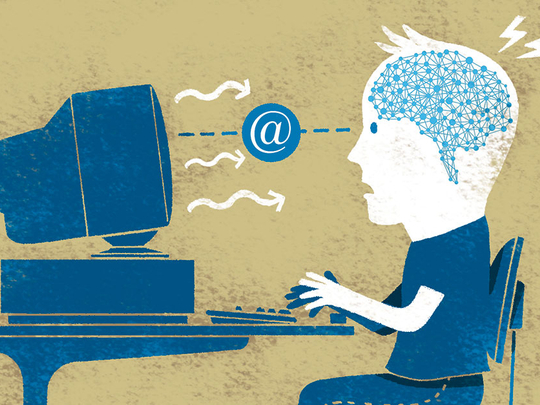
Do computer games and internet use wreak havoc on young brains? That’s the debate I seem to have been dragged into, thanks to the potentially adverse effects of information technology (IT) that I described in my recent book Mind Change.
As the Telegraph detailed recently, an article in the British Medical Journal has now accused me of scaremongering. But its authors (one of whom is a colleague of mine at Oxford University) have got the wrong end of the stick. I have never suggested that reasonable use of the internet “harms” the adolescent brain. But it’s worth noting that recent research shows that some teens are using IT for up to 18 hours per day, when media-multi-tasking is taken into account.
Palatable or not, other research suggests that intense use of the internet and video games may lead to microstructural abnormalities in the brain, and the effects may be comparable to those of drug abuse. A further item on the BMJ charge sheet is that I have not published my claims in peer-reviewed scientific literature. But I am not pretending to conduct experiments that test a specific, falsifiable hypothesis.
Rather I set out to provide a review — accessible to everyone — of the current state of all the research in this field. This research is continuously evolving, just as the technologies it evaluates are doing, and spans a host of complex and diverse disciplines: neuroscience, psychology, sociology, among others. Nonetheless, Mind Change does cite some 250 peer-reviewed papers — as such it has been described by the distinguished neurologist Richard Cytowic as “the most reference-dense and annotated work of its kind I can recall”.
The fundamental point is that the increasing impact of information technology on our lives raises a host of issues that we must unpack: the impact of social networking on identity; the effects of gaming on attention spans; the effects of search engines on memory and learning ... the list goes on. To demand that a definitive, one-stop-shop experiment be carried out to determine whether all this is “good” or “bad” is naive to say the least. Where we can be specific, however, we can begin to make judgements.
On the potentially deleterious effects of social networking, for example, many studies point to an associated trend for a more “volatile” identity, increased narcissism, low self-esteem and concealment of the “real” self. Moreover, recent research suggests that an environmental component to autistic-like behaviours cannot be completely discounted, and the environment of the screen could in some cases be relevant. In America, more than half of children on the autistic spectrum are five years old or above when first diagnosed.
When reports suggest that almost all children access smartphones from the age of two, it is understandable that some studies draw parallels between this behaviour and autistic spectrum-like disorders. These studies may raise sensitive and worrying issues about our children’s interaction with technology and screens, but surely those issues should be aired openly, not buried.
Visuo-spatial ability
Let’s be clear, I am not a Luddite wishing away technology. On video games, for example, I have described how action video gaming actually improves visuo-spatial ability and have taken care to make clear that, in my mind, the debate about links between aggression and violent video games has not been settled one way or another. There are other academics, including those behind some of the 136 papers on video games and aggression recently reviewed, who go further.
Finally, the BMJ article takes exception to my suggestion that reliance on search engines and surfing the internet for information may favour superficial mental processing at the expense of deep knowledge and understanding. Yet there are serious academic studies, in such journals as The Neuroscientist, which indicate that precisely this may well be happening. I am trying not to make value judgements, but simply wish to bring to public attention the diverse ways in which new technologies may soon affect society — as soon as the middle of this century. What may prove to be an unpleasant outcome for some — let’s say diminished communication skills or shorter attention span — may be a perfectly acceptable part of modern life for others. It is for this reason that black and white terms such as “harm” are not very useful. Because the digital world offers a way of life that is unprecedented and multifaceted, we need to be fully aware of all the opportunities it can offer.
Above all we should surely aim to empower the individual so that the technologies are a means to an end, not the end itself. My detractors conclude: “There is already much research into the many concerns about digital technology, and the public deserves to participate in the debate fully informed of all the evidence”.
I could not agree more. That is why I wrote Mind Change — because we must confront the real possibility that, as well as benefits, the radically new ways in which we are living our lives today may well have potentially disturbing consequences.
The Telegraph Group Limited, London, 2015









